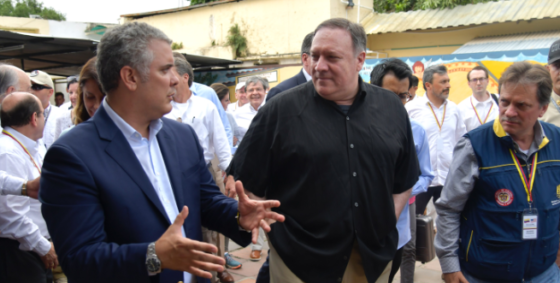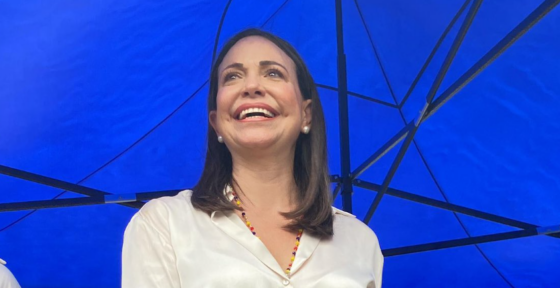
Does Venezuela’s Opposition Stand a Chance Next Year?
A Latin America Advisor Q&A featuring experts’ views on the presidential elections in Venezuela.
A Latin America Advisor Q&A featuring experts’ views on the presidential elections in Venezuela.
For more than 15 years, the United States has been imposing a wide variety of economic sanctions against Venezuela, claiming the South American country has aided in drug trafficking, sponsored terrorism, and committed human rights abuses. Tamara Taraciuk Broner, Director of Peter D. Bell Rule of Law Program at the Inter-American Dialogue spoke with Al Jazeera about this important issue.
On October 22nd, 2019 the United States Institute for Peace hosted an event on “A Negotiated Solution for Venezuela: Prospects for a Peaceful and Inclusive Settlement” in partnership with the Washington Office on Latin America (WOLA), the Inter-American Dialogue, and Woodrow Wilson Center’s Latin America Program.
While the crisis in Venezuela is primarily humanitarian in nature, international involvement has escalated to the point where a discussion of the geopolitics surrounding the issue is both appropriate and timely. To that end, the Inter-American Dialogue co-hosted a discussion on May 21 titled “Is the Venezuela Crisis Becoming a Proxy Conflict?” with the Carnegie Endowment for International Peace.
President Donald Trump’s decision last month to increase sanctions on Cuba represents a strategic error with serious long-term repercussions for U.S. national security.
Venezuela may be slowly moving into a scenario in which the military moves to take full control, without Maduro, but not necessarily in accordance with Guaidó’s (and the constitution’s) terms and timetable for a transition.
Venezuela’s stalemate will not last forever, but an immediate and easy return to democracy is highly unlikely. The quicker the opposition and its international supporters adapt their strategies to this hard reality, the sooner the country can begin to find a way out of this unprecedented crisis.
Michael Shifter, president of the Inter-American Dialogue, was interviewed for Background Briefing with Ian Masters, where he discussed the Trump administration’s foreign policy towards Venezuela during this crisis and how their militarist thinking is not the best course of action.
Michael Shifter, president of the Inter-American Dialogue, was interviewed by BBC World News on the future of the Venezuelan armed forces amidst continuing protests as well as the possibility of US and Russian intervention.
Michael Shifter, presidente del Diálogo Interamericano, ofreció una entrevista al programa La Tarde de NTN24 en la que conversó sobre la actual situación en Venezuela.
Michael Shifter spoke with Laura Trevelyan on BBC World News to analyze the future of Juan Guaidó and the Venezuelan military as as the pressure coming from the Trump administration.
Michael Shifter, president of the Inter-American Dialogue, was interviewed by CNN International on the anti-Maduro protests taking place in Venezuela as well as the role of Cuba in the Maduro regime.
Michael Camilleri, director del programa de leyes Peter D. Bell de Diálogo Interamericano participo en CNN Dinero donde analizo junto a Xavier Serbiá, los posibles escenarios contenidos en el reporte “Transición Interrumpida” publicado por el Diálogo.
On April 18, Michael Shifter participated in a panel discussion hosted by the NYU Brademas Center and NYU Washington, DC to analyze the Venezuelan crisis and the steps needed to rebuild the country.
What did Pompeo accomplish on his trip to Latin America?
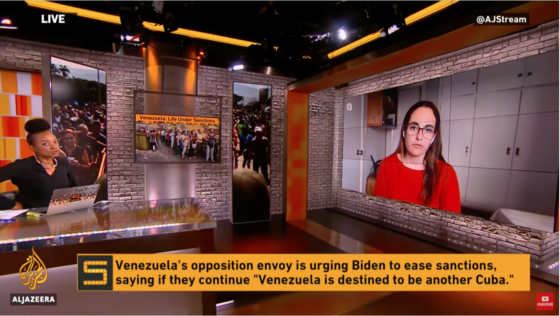 Video
Video
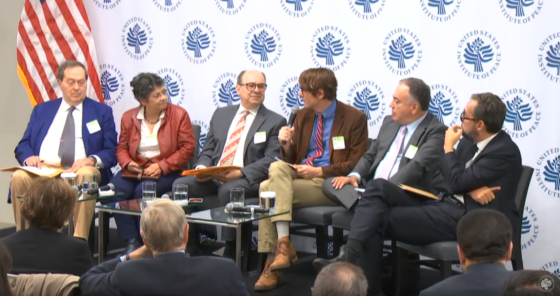 Video
Video
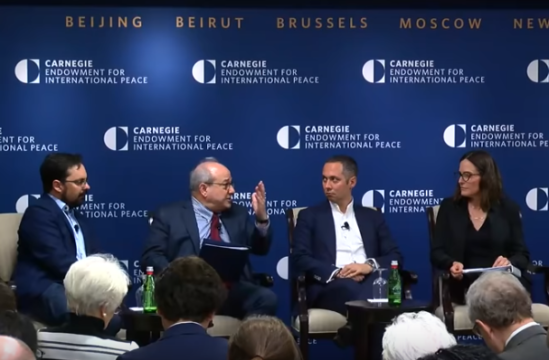 Video
Video
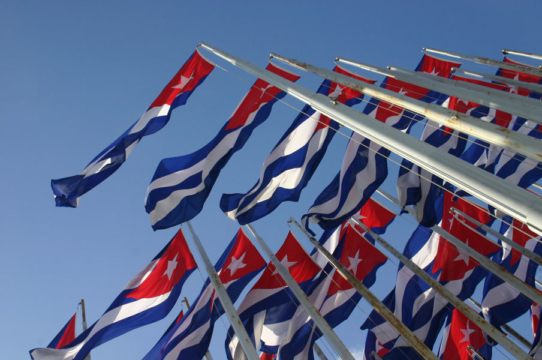
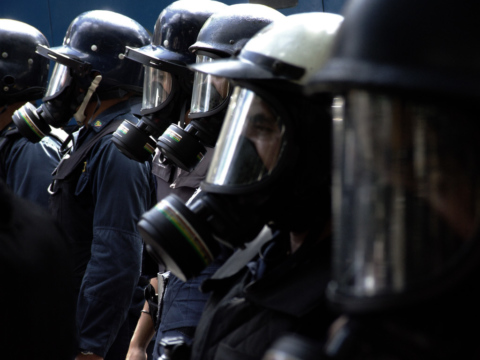
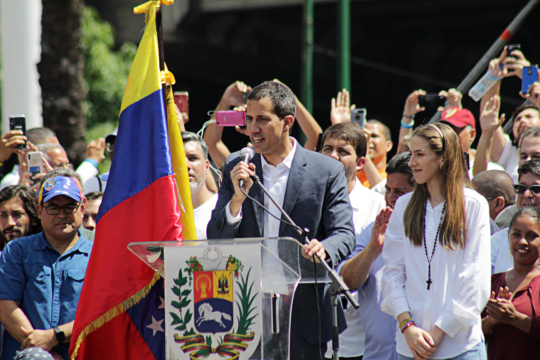
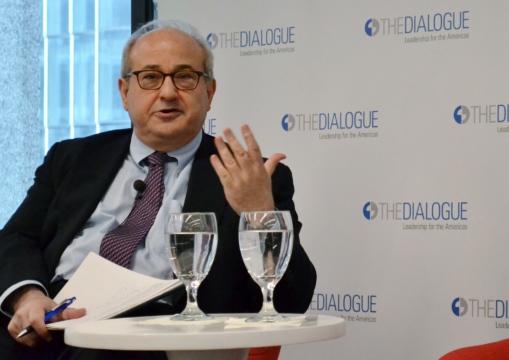 Video
Video
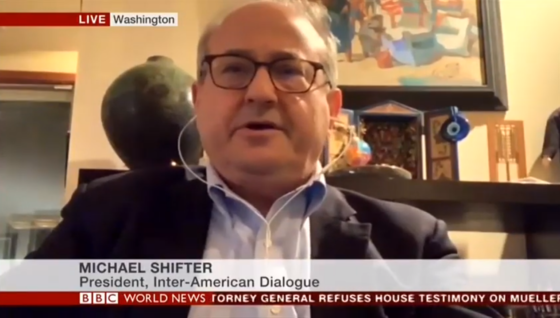 Video
Video
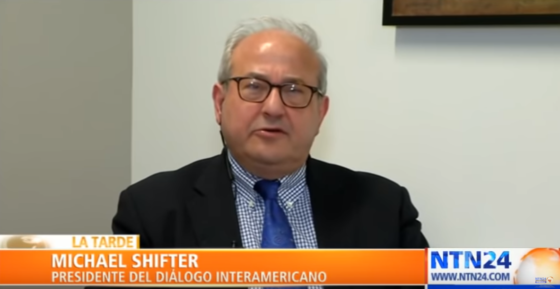 Video
Video
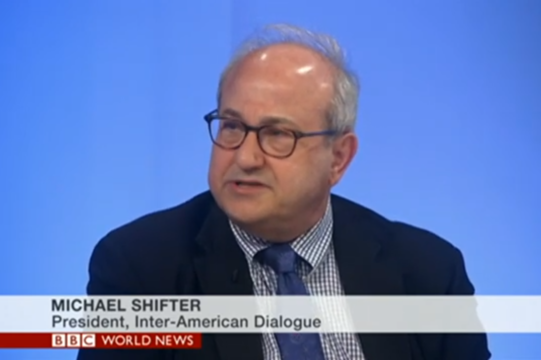 Video
Video
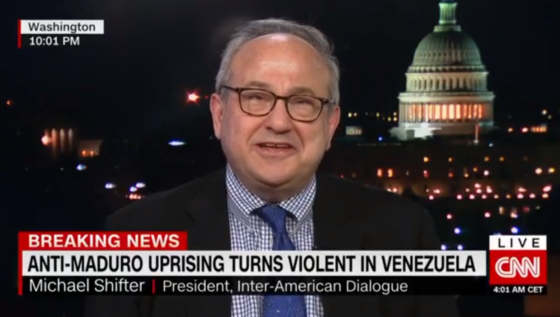 Video
Video
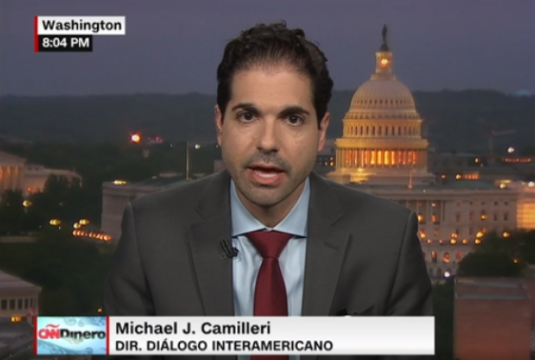 Video
Video
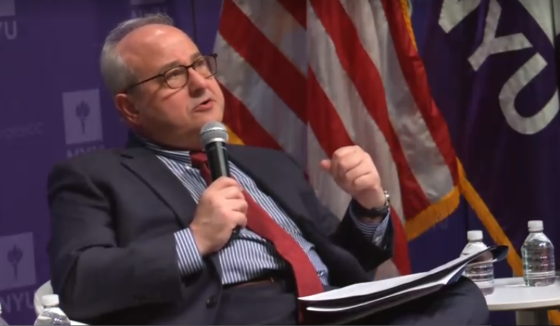 Video
Video
